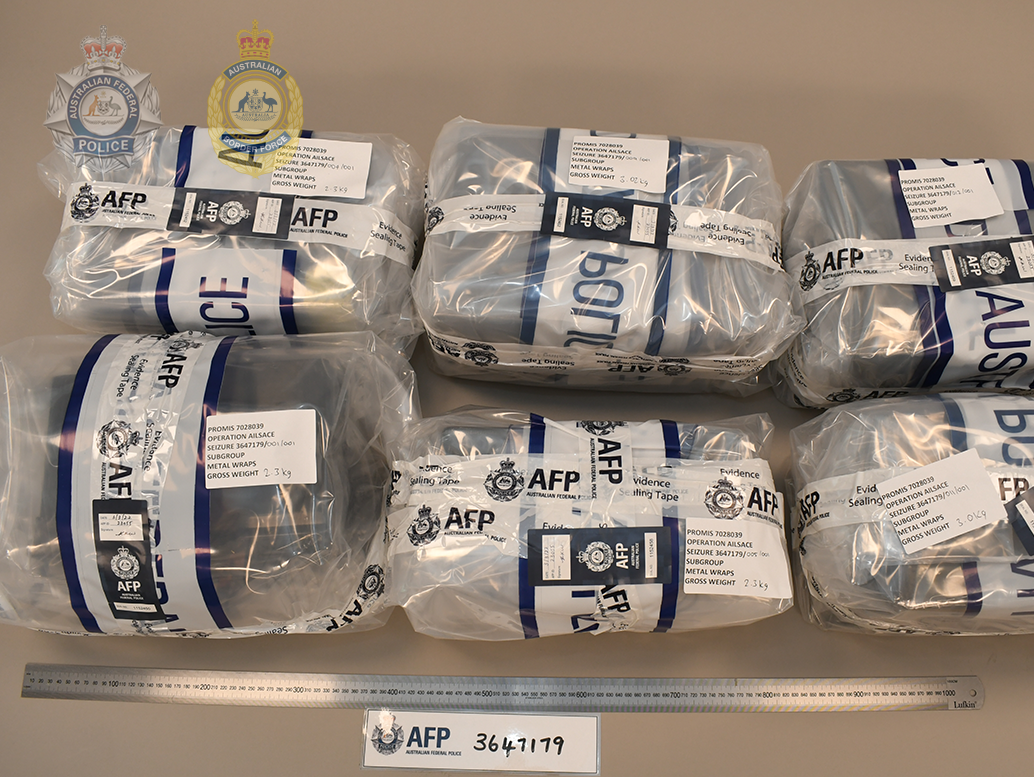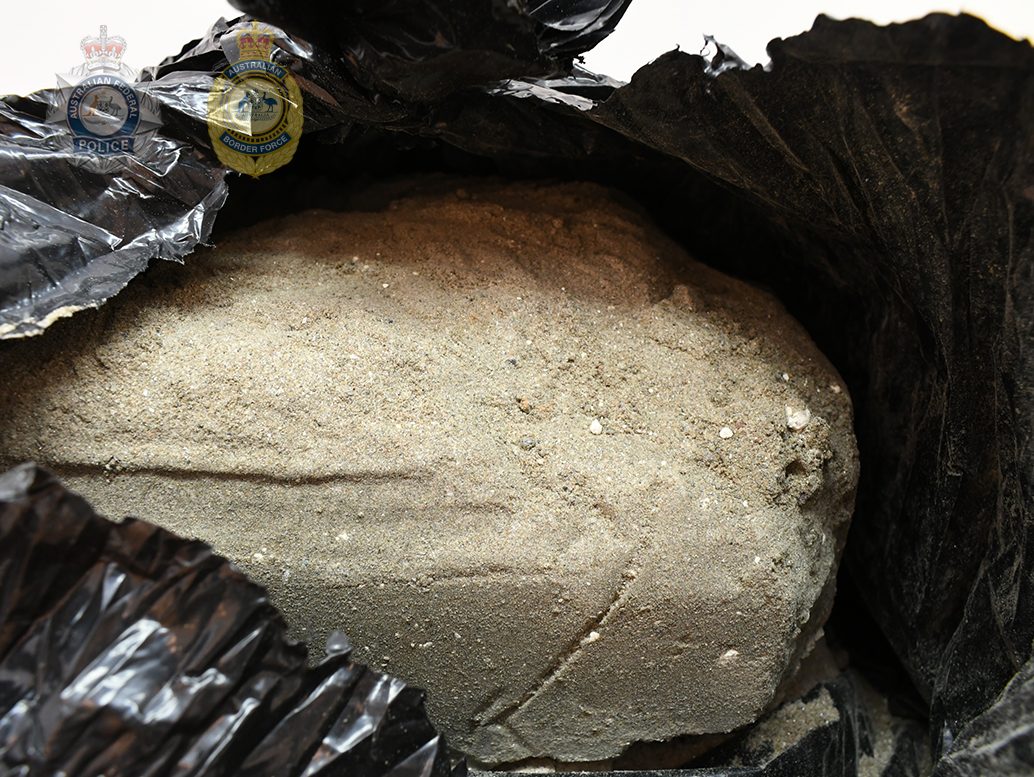
A shipment of fentanyl from Canada was seized in Melbourne in 2022. Photo: Australian Federal Police.
The illicit manufacture and importation of fentanyl and other synthetic opioids pose a threat to Australian rural and metropolitan communities that cannot be overstated.
Fentanyl is a strong opioid-based painkiller used in controlled conditions by medical practitioners, but it is increasingly used illegally to lace other drugs such as heroin, cocaine and methamphetamine, while it is also being made in tablet form.
The substance is reportedly 20 to 40 times stronger than heroin, and 100 times more powerful than morphine.
Considered an epidemic in the US, fatal overdoses from fentanyl were responsible for the deaths of 109,680 people in that country in 2022, while Canada has also been gripped by the devastating crisis.
Canada shares many social and cultural similarities with Australia, and it is perhaps through the tragedy of fatal drug overdoses that rural and metropolitan regions of Australia can heed a warning.
Of all the apparent accidental opioid toxicity deaths in Canada from January to March 2023, 81 per cent involved fentanyl. This number rises to 93 per cent when the province of Alberta is examined individually.
The illicit manufacture of fentanyl in Australia is not common, but considering that drug overdoses per capita in Australia are worse in rural areas and among Aboriginal and Torres Strait Islander peoples, the importation of the substance poses a serious threat to regional areas.
Australian Federal Police seized 11 kg of the substance in 2022 when it was illegally transported through the Port of Melbourne. That shipment, which originated in Canada, was enough to produce more than 5 million doses of the deadly drug.

Australian Federal Police seized 11 kg of fentanyl in 2022 when it was illegally transported through the Port of Melbourne. Photo: Australian Federal Police.
The issue is further complicated in Australia by the recent detection of nitazenes in heroin. Nitazenes are synthetic opioids from the benzimidazole group that cannot be detected by fentanyl test strips.
The North American crisis is said to have originated from the direct marketing of over-the-counter opioids such as oxycodone.
Australia restricts the marketing of pharmaceuticals to consumers, but these laws do not lessen the danger of the growing illicit market.
NSW Health has issued several public warnings on the dangers of fentanyl and other synthetic opioid substances such as isotonitazene, which has reportedly been responsible for overdose fatalities on the NSW Central Coast.
Wagga Wagga has seen the dangers of fentanyl, with overdoses from the prescribed substance in the past, while several years ago there was also the case of professional malpractice via the overprescription of the drug.
Incidents of deaths from prescription fentanyl are on the decline in this country, but several government departments and institutions such as Monash University are urging Australians to become aware of the drug’s illicit manufacture and its subsequent dangers.

Australia is ill-equipped to handle a synthetic opioid crisis. Photo: File.
Reports also suggest that Australia is ill-equipped to handle a drug crisis of the scale fentanyl and other synthetic opioid drugs would bring. This problem would be even more acute among regional communities due to distance and the already stretched health resources.
To combat the growing issue, the Australian Government has made $19.6 million available over four years to provide free naloxone without a prescription.
Naloxone is a medicine that can reverse an overdose of opioids such as fentanyl.
This initiative will help keep people alive in many situations, but the abject horror of these varied substances and the despicable nature of those who produce them will pose an immediate threat to its success.
The use of xylazine (a veterinary tranquilliser) by drug dealers as a mixer, in conjunction with fentanyl, can render naloxone ineffective in many cases.
The potency of fentanyl can be further illustrated by the swiftness in which it can result in a fatality. A time frame of two to five minutes leaves a small window for the application of medicines such as naloxone.
All of this may seem far from home to regional readers, but the rise of synthetic opioid abuse in North American cities and towns has displayed how rapidly the drug can negatively impact communities.
This has happened, in part, because drugs such as fentanyl are incredibly addictive, and the fact that they are often used by drug dealers as a cheap additive to other drugs.
This practice leaves users unaware of their presence and at great risk of a fatal overdose.
Fentanyl derivatives such as carfentanil exasperate the problem by being up to 50 times more potent than fentanyl, and 1000 times more potent than morphine.
With Australia having a history of following North American drug trends, the current fentanyl crisis is an opportunity for the Australian Government, medical professionals and the general public to educate themselves on the devastation caused by these drugs.
Original Article published by Michael Murphy on Region Riverina.








